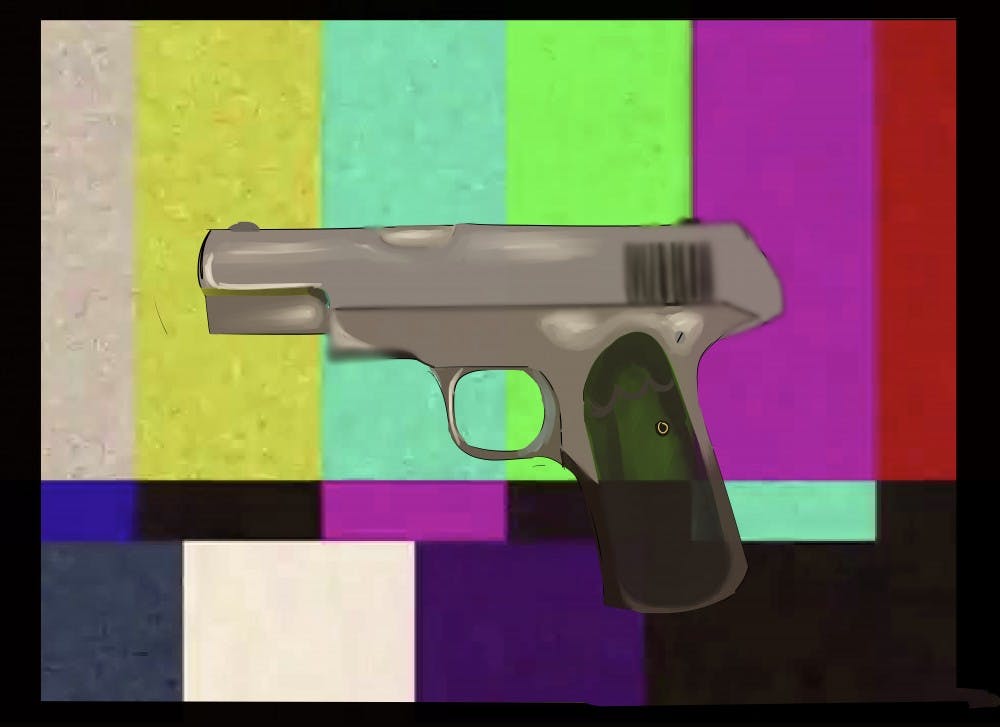I have watched in horror and disbelief with the rest of the country as reports of mass shootings and instances of gun violence have consistently plagued news outlets and dinner–table conversations for almost as long as I could remember. But it wasn’t until about a week ago that I started to think about the issue of gun violence a little more personally.
I got a text from my high–school best friend, a second–year Dartmouth student, informing me of a shooting and lockdown on Dartmouth’s campus. Although not classified as a mass shooting, it shook the sense of immunity to gun violence I had fostered for myself and my loved ones and found comfort in for way too long.
The fear and anger I felt towards my now–shattered illusion of safety prompted a new feeling: helplessness. What could a puny college student like me, possibly do to stop such an overwhelming and tragic epidemic? I’m not an expert in politics or gun control, but the least I could do, I thought, is talk about it in the context of things I do know: film and TV.
We’ve all heard the age–old excuse, used by too many politicians and overprotective parents, that gun violence in film and TV is a key factor in explaining just why mass shootings happen. So. Damn. Often. Some would call this a cop–out—an easy blanket statement of blame used to avoid enacting anything real and proactive, like legislation. And I would agree.
But are TV shows and movies wrong for depicting stories of actual mass shootings and school shootings? TV shows such as American Horror Story, Grey’s Anatomy, One Tree Hill, Glee, and 13 Reasons Why. Movies such as Elephant, Bowling for Columbine, We Need to Talk About Kevin, Zero Day, and Beautiful Boy. They have all produced content depicting their own respective takes on the fucked–up atrocities infesting our country. But what’s the point in creating works based on unthinkable tragedies so prevalent?
To many, it’s seen as a way for directors, entertainment companies, and media providers to capitalize off of people’s pain and sadness and (maybe unintentionally) perpetuate an existing copycat problem. Or it’s seen as just another chance to glamorize, and sometimes even sexualize, gun violence and mass shooters to a blood–thirsty audience.
But these aren’t your average retellings of historical tragedy or tributes to catastrophic events—movies and shows based on events like 9/11, the Holocaust, Titanic, such as Holocaust (miniseries), Schindler’s List, United 93, Rescue Me, and Titanic.
They’re all based on traumatic events in history. But they were also all made in retrospect, when people attempted to solve the problems, whether in the form of legislation, war, or preemptive measures and regulations.
Content based on mass shootings is so hard to watch because I know there is no solution in sight for me to take comfort in. No laws or rules. Just a lot of death and fear for people to copy and repeat. So really, what is the point?
That being said, I realized something as I was writing this that I think is worth mentioning. I had previously seen almost all of the TV shows and movies listed, on my own accord. How can I sit here and criticize these productions for existing when I’m simultaneously a consistent consumer of them? And then I thought, “Why do I even enjoy watching them in the first place?” These are gory and bloody adaptations of real–life calamities.
For a hot sec, I really thought myself a bad person for subscribing to them. But there’s a reason why violent shows and films sell so well and are produced so frequently. Watching these movies and shows offers a sort of catharsis for viewers and allows them to release a variety of pent–up emotions like anger and resentment, in a non–direct way. Although it sounds weird and creepy, it’s a very real thing that people do, whether we realize it or not.
So, is it morally acceptable to produce and consume this type of media? Do they glamorize and normalize gun violence, or do they offer a useful outlet for certain viewers? At what point do these shows and movies contribute more to the solution than they do to the problem? These questions don’t have easy answers but hopefully as we continue the conversation, we can come up with one better than “thoughts and prayers.”

